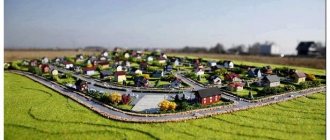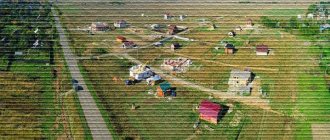Classification by legal form
The legislation of the Russian Federation provides for the following organizational and legal forms: horticultural, gardening and dacha non-profit associations:
Non-profit partnership
A gardening, vegetable gardening or dacha non-profit partnership is an organization in which property created or acquired through contributions from members of the partnership is the property of the partnership as a legal entity, with the exception of property acquired or created using funds from the so-called. "targeted contributions". At the same time, members of a horticultural, gardening or dacha non-profit partnership are not liable for its obligations, and the partnership is not liable for the obligations of its members.
Non-commercial partnership
A gardening, vegetable gardening or dacha non-profit partnership is an organization in which all property created or acquired through contributions from partnership members is the property of the partnership as a legal entity. At the same time, members of a horticultural, gardening or dacha non-profit partnership are not liable for its obligations, and the partnership is not liable for the obligations of its members.
Consumer cooperative
A gardening, vegetable gardening or dacha consumer cooperative is an organization in which property created or acquired through contributions from members of the partnership is the property of the partnership as a legal entity. At the same time, members of a horticultural, gardening or dacha consumer cooperative are obliged to annually cover the resulting losses by making additional contributions, as well as bear subsidiary liability for the obligations of such a cooperative within the limits of the unpaid portion of the additional contribution of each member of such a cooperative.
The legal status of horticultural, vegetable gardening and dacha associations is regulated by Federal Law No. 66-FZ of April 15, 1998 “On horticultural, vegetable gardening and dacha non-profit associations of citizens” (hereinafter referred to as Law No. 66-FZ).
Federal Law No. 99-FZ of May 5, 2014 “On amendments to Chapter 4 of Part 1 of the Civil Code of the Russian Federation and on the recognition as invalid of certain provisions of legislative acts of the Russian Federation” (hereinafter referred to as Law No. 99-FZ) amended the Civil Code RF, which came into force on September 1, 2014.
From September 1, 2014, all legal entities, including non-profit ones, are created only in the organizational and legal forms provided for in Chapter. 4 Civil Code of the Russian Federation. At the same time, organizations created earlier must bring their names and constituent documents into compliance with the new requirements when the constituent documents are changed for the first time.
From September 1, 2014, a gardening, gardening or dacha non-profit association of citizens must be brought into line with either a consumer cooperative or a real estate owners' association.
One of the forms of non-profit corporate organizations is a consumer cooperative.
In accordance with Art. 123.2 of the Civil Code of the Russian Federation, a consumer cooperative is recognized as a voluntary association of citizens or citizens and legal entities based on membership in order to satisfy their material and other needs, carried out through the pooling of property shares by its members.
The charter of a consumer cooperative must contain information about the name and location of the cooperative, the subject and purpose of its activities, conditions on the amount of share contributions of members of the cooperative, the composition and procedure for making share contributions by members of the cooperative and their responsibility for violating the obligation to make share contributions, the composition and competence of bodies cooperative and the procedure for making decisions, including on issues on which decisions are made unanimously or by a qualified majority of votes, the procedure for covering losses incurred by members of the cooperative.
The name of a consumer cooperative must contain an indication of the main purpose of its activities, as well as the word cooperative. The name of the mutual insurance company must contain the words “consumer company”.
By decision of its members, a consumer cooperative can be transformed into a public organization, association (union), autonomous non-profit organization or foundation. At the same time, for reference, we note that a housing or housing construction cooperative, by decision of its members, can only be transformed into a partnership of real estate owners.
Within three months after approval of the annual balance sheet in accordance with Art. 123.3 of the Civil Code of the Russian Federation, members of a consumer cooperative are obliged to cover the resulting losses by making additional contributions. If this obligation is not fulfilled, the cooperative may be liquidated in court at the request of creditors.
Members of a consumer cooperative jointly and severally bear subsidiary liability for its obligations within the limits of the unpaid portion of the additional contribution of each member of the cooperative.
Classification by purpose of land plots
Land plots provided to citizens are divided into the following types of intended purposes:
Garden plot of land
Garden land plot is a land plot provided to a citizen or acquired by him for growing fruit, berries, vegetables, melons or other agricultural crops and potatoes, as well as for recreation (with the right to erect a residential building and outbuildings and structures).
Garden plot of land
Garden plot of land - a plot of land provided to a citizen or acquired by him for growing berries, vegetables, melons or other agricultural crops and potatoes (with or without the right to erect a non-permanent residential building and economic buildings and structures, depending on the permitted use of the land plot, determined by zoning of the territory).
Dacha land plot
Dacha land plot is a plot of land provided to a citizen or acquired by him for recreational purposes (with the right to erect a residential building or a residential building and outbuildings and structures, as well as the right to grow fruit, berries, vegetables, melons or other agricultural crops and potatoes).
Pros and cons of purchasing plots on agricultural land
The status of land plots is determined by two parameters: the category of land and the type of permitted use.
This is interesting: Time-based bonus wage system in 2019 - what is it, example of calculation, pros and cons, formula
Lands may fall into the following categories: lands of populated areas, agricultural lands, lands of specially protected areas, lands of industrial purposes (as well as transport, communications, radio broadcasting, defense, etc.), lands of the forest fund, lands of the water fund, etc.
The type of permitted use of a land plot is one of the main characteristics of a land plot, which affects the determination of the legal regime for the use of land and is established in accordance with the zoning of territories.
The main types of permitted use of land include: individual housing construction (IHC), personal subsidiary farming (LPH), vegetable gardening, horticulture, summer cottage construction, agricultural production, farming, low-rise housing construction, residential and commercial development, etc.
As a rule, to meet the needs of citizens in organizing dachas, agricultural lands are allocated for dacha construction, gardening or vegetable gardening, and not for individual housing construction. This imposes certain restrictions on the use of the land, but, at the same time, provides a number of advantages to its owner. One of these advantages is significant savings when paying land tax.
Fundamental differences between agricultural lands with different types of permitted use:
On a gardening plot you can grow berries, vegetables, melons or other crops and potatoes. On such land it is impossible to build permanent buildings, that is, residential buildings with a foundation. The biggest thing you will be allowed to install is a non-permanent residential building in the form of a temporary house or trailer.
Options for temporary shelters that are allowed to be installed on plots for gardening
On lands for gardening, in addition to the crops listed for gardening, you can grow fruit trees, as well as build a permanent residential building and register it as property. However, registration is not allowed in such a building.
On agricultural lands intended for summer cottage construction, you can engage in gardening and vegetable gardening, as well as build residential buildings and register in them.
Construction parameters on dacha plots and the construction procedure are regulated by SNiP “Planning and development of territories of horticultural (dacha) associations of citizens” and SP “Development, coordination, approval and composition of design and planning documentation for the development of territories of horticultural (dacha) associations of citizens.”
The specified standards regulate the minimum height of a living space, which must be at least 2.2 m, the minimum height of utility rooms - at least 2 m, the height of the cellar - at least 1.6 m.
There are no size limits, and there are no requirements for the number of storeys.
The only restriction applies to plots with an area of 0.12 hectares, during the development of which no more than 30% of the area can be used for a house and auxiliary buildings.
In accordance with the Town Planning Code and the Law on State Registration of Rights to Real Estate and Transactions with It, permission to build a country house or garden house is not required.
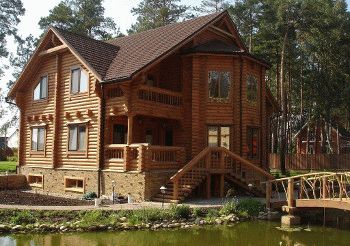
On plots for summer cottage construction you can build houses of any type
The optimal solution to the dacha issue is to purchase an agricultural land plot with the type of permitted use “for dacha construction” in a village with the organizational and legal form of DNP (dacha non-profit partnership). In this case, the owner of the land receives wide opportunities in choosing options for constructing a residential building with the possibility of registration in it, and can also grow any agricultural crops, fruit trees and other green spaces on the site. And the “partnership” will allow not only to organize the work of the dacha village and maintain common property in good repair, but also to control the expenditure of funds collected from members of the DPP for these purposes.
Guarantees of the rights of citizens who have not expressed a desire to participate in associations
Citizens engaged in gardening, vegetable gardening or dacha farming individually on the territory of a horticultural, vegetable gardening or dacha non-profit association have the right to use infrastructure facilities and other common property of the horticultural, vegetable gardening or dacha non-profit association for a fee under the terms of agreements concluded with such association in writing form in the manner determined by the general meeting of members of a horticultural, gardening or dacha non-profit association. At the same time, the amount of payment for the use of infrastructure facilities and other common property of a horticultural, gardening or dacha non-profit association for citizens engaged in gardening, horticulture or dacha farming on an individual basis, provided they make contributions for the acquisition (creation) of the specified property, cannot exceed the amount of payment for the use of the specified property for members of such an association.
- Organization
- Non-profit organization
- Gardening Partnership
> Notes >Category “Gardening, gardening or dacha non-profit partnerships”
Now only SNT and ONT, and all at your own expense
The first thing that catches your eye when comparing the two documents is that in the new law there is no such thing as dacha partnerships and cooperatives. There remain only horticultural non-profit partnerships and gardening non-profit partnerships, which are equivalent to partnerships of real estate owners. Accordingly, such forms provided for by Law No. 66, such as dacha partnerships, horticultural, gardening or dacha consumer cooperatives and horticultural, vegetable gardening or dacha non-profit partnerships, cease to exist. In addition, a lot of purely fantasy things that had no application in real life disappeared from the new law - mutual lending and rental funds, meetings of commissioners, and so on. The provisions on state support for gardeners and gardeners have also become much more modest.
Types of associations
Like any official organization, such associations are classified according to several criteria:
- by organizational and legal form (what relationships will be between the members of the association, what rights and responsibilities will be assigned to each of them);
- according to the type of possible and permitted use of land (purpose of owned land).
No matter what type of association you join, you should first carefully read all the rules and your responsibilities. After all, in addition to the opportunity to join the association, there is also the possibility of being excluded from it. And if you plan to register your association, then study the features of each type.
By the nature of the legal characteristics of community members:
- Partnership. The peculiarity of this type is that the partnership has property that is acquired with contributions from members. And this property is the property of the partnership as a legal entity, not an individual. Members of the partnership are not responsible for the problems of the association and the entire association is not responsible for the issues of each individual member of the partnership. That is, here it’s every man for himself. In a partnership, the charter must define a fund that is created from contributions (their amount must also be specified in the charter). All activities of the partnership are regulated by law and the civil code of the Russian Federation.
- A partnership that is not associated with commercial activities (non-profit). Partnership in this case is almost the same as partnership. There are the same contributions that are spent on the needs of the association, the charter and laws that govern the activities of the partnership. Such an association helps solve common problems at the administration level, that is, a controversial issue is not decided by an individual land owner, but all members of the partnership participate in the decision, and a negative outcome can affect each member of the partnership.
- Cooperative (and the cooperative also has the consumer prefix). This organization is distinguished by the fact that in addition to the contributions established by the charter for solving the problems of the cooperative, each of its members must annually cover the resulting loss with additional contributions. Moreover, if someone has not made a contribution, the rest will cover this shortfall.
New dacha law and terms of reorganization of the cooperative
We have a horticultural consumer cooperative. As of July 2020, it has not yet been renamed, and the Charter has not been redone to comply with today’s law No. 217-FZ. What deadlines are established by law on this issue?
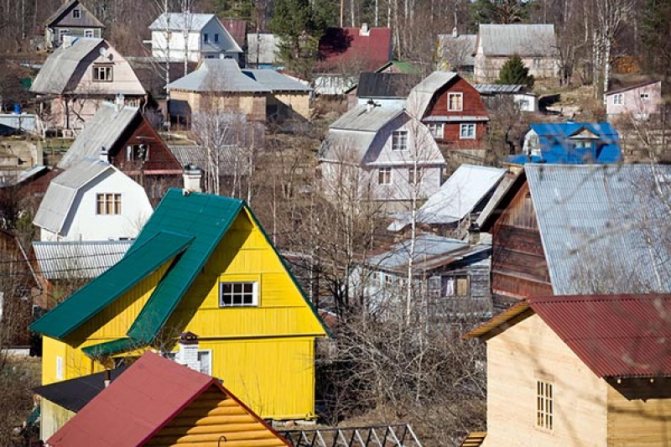
According to the transitional provisions of the new Law, renaming and adjustment of constituent documents is necessary for non-profit organizations - horticultural, gardening or dacha partnerships, dacha partnerships. At the same time, the Law does not set any specific deadlines, and the constituent documents of such organizations are valid only to the extent that does not contradict the new legislation.
The situation with horticultural and gardening consumer cooperatives is somewhat different. Since 2020, the activities of this organizational and legal form are no longer regulated by “dacha” legislation; moreover, this form of organization no longer exists at all. Therefore, even in a small part, the charter of the SPK is not valid - everything in it contradicts the new legislation. Members of the cooperative have two options for decisions provided for by the transitional provisions of Law No. 217-FZ.
The first option is to decide that the team wants to garden on the territory of the cooperative. To implement this decision, it will be necessary to reorganize the SEC by transforming it into a partnership of real estate owners (that is, into a SNT, as a special case of TSN).
Read: No personal data - no trial?
The second option is to decide on the intention to conduct commercial activities in the production, processing and marketing of crop products and other activities not related to gardening. To implement this decision, it will be necessary to bring the statutory and constituent documents into compliance with the legislation on agricultural cooperation (reorganize into a production cooperative).
The law does not establish a time frame for the reorganization for one simple reason - since 2020, the activities of the cooperative cooperative are actually outlawed, therefore, carrying out the reorganization as soon as possible is in the interests of the members of the cooperative.
You might be interested in:
- The authorized representatives took out a loan without the knowledge of the gardeners
- Can SNT become a management organization?
- Dacha amnesty extended until 2021
- Meeting in SNT: is it possible to achieve a quorum by absentee voting?
- Is it possible to leave SNT or DNT? How to withdraw your plot from the partnership
- Can gardeners be forced to clean the forest?
Subscribe to our channel in Yandex.Zen
Charter of a consumer cooperative created in Russia
Law of the Russian Federation dated June 19, 1992 No. 3085-1 “On Consumer Cooperation” regulates in detail the procedure for creating a PC and approving its charter. The main task of the specified constituent document is to determine the general and specific issues of creating a cooperative: determining the purpose of its activities; procedure for accepting new members of the cooperative; procedure for the formation of property; format for the creation and functioning of cooperative management bodies.
Charter of a horticultural consumer cooperative (the chairman of the board is elected by the board)
Access to the full contents of this document is restricted.
In this case, only part of the document is provided for familiarization and avoidance of plagiarism of our work.
To gain access to the full and free resources of the portal, you just need to register and log in.
It is convenient to work in extended mode with access to paid portal resources, according to the price list.
>Charter of a dacha consumer cooperative (recommended sample filling)
Fresh materials
Task: determining assets and liabilities Sorry, I read the terms of the task in the wrong place. And so...
PKG See what “PKG” is in other dictionaries: PKG - polycardiogram... Dictionary of Russian abbreviations...
Associations of summer residents are trying out new organizational and legal forms
The founders of a dacha consumer cooperative are considered accepted members from the moment of its state registration. The board of the cooperative is obliged to issue a membership book within three months from the date of admission of a citizen as a member of the cooperative.
Members of a dacha consumer cooperative can be citizens of the Russian Federation who have reached the age of sixteen and have land plots within the boundaries of such a cooperative. The location of a dacha consumer cooperative is determined by the place of its state registration. A dacha consumer cooperative, as a non-profit organization, has the right to carry out business activities consistent with the goals of its creation.
A demand for the liquidation of a dacha consumer cooperative may be brought to court by a state authority or local government body. To create a horticultural consumer cooperative, at least three members will be required. At the expense of the share contributions of the members of the horticultural consumer cooperative, property for common use is created and is in its ownership.
The highest governing body of a horticultural consumer cooperative is the general meeting of members. During reorganization, the rights and obligations of its members are transferred to the legal successor in accordance with the transfer deed or separation balance sheet. The deadline for submitting creditors' claims cannot be less than two months from the date of publication of the notice of liquidation. After a decision on liquidation is made, the members of the cooperative are obliged to repay in full the debt on their contributions.
We invite you to familiarize yourself with: Rules for repaying a loan on a Sberbank credit card
A vegetable gardening consumer cooperative has a name containing an indication of its organizational and legal form and the nature of its activities. The governing bodies are the general meeting of members, the board and the chairman of its board. Members of the gardening consumer cooperative become members of newly created organizations. One of the forms of non-profit corporate organizations is a consumer cooperative.
If this obligation is not fulfilled, the cooperative may be liquidated in court at the request of creditors. The rights of citizens to land plots acquired by them do not depend on membership in a horticultural, gardening and dacha non-profit association.
The number of members of the partnership cannot be less than 3 people. Members of a gardening, gardening or dacha non-profit partnership are not liable for its obligations, and such a partnership is not liable for the obligations of its members.
Citizens have the right to conduct gardening, gardening or dacha farming on an individual basis. Non-payments for the use of infrastructure facilities and other common property of a horticultural, gardening or dacha non-profit association are recovered in court. Decisions on the participation of horticultural, gardening and dacha non-profit associations in a local or inter-district association (union) are made by general meetings of members of such associations.
A gardening or dacha consumer cooperative is an organization created on a non-profit basis. Members of such an organization create common property of the cooperative.
Members of a dacha or gardening cooperative must constantly cover the organization’s losses and bear full responsibility for subsidies. The responsibility of each member of such organizations is clearly and precisely stated in the charter of the cooperative. Citizens of the Russian Federation who have already reached the age of 16 years and own plots of land within the boundaries of a specific cooperative.
5. Income received by a consumer cooperative from business activities carried out by the cooperative in accordance with the law and the charter are distributed among its members.
Article 52. Constituent documents of a legal entity 1.
If you have full ownership of the land and buildings, i.e. the right of possession, the right of use and the right of disposal, you certainly can. But be sure to look at the Charter, the conditions and procedure for such an exit must be spelled out there.
If you privatize, you can get out. But you will still have to pay general expenses in the cooperative. After all, you will use electricity, roads, security, etc.
Joining a dacha cooperative can be divided into 4 steps:
- Familiarization with the rules of the organization and checking that oneself meets its requirements.
- Submitting an application for membership in a free form to the chairman of the board of the cooperative and paying the entrance fee.
- Receiving a decision on admission to the cooperative.
- Obtaining a membership book or an equivalent established in this organization.
Types of land plots
The following types of land use are permitted by law:
- Private household plot (personal subsidiary plot);
- DNP (dacha non-profit partnership);
- SNP, SNT, SPK (various horticultural associations);
- peasant farm (peasant farm);
- IZHS (individual housing construction).
Each plot must be entered into the state cadastre. In this case, the cadastral number, date of entry, area, description of boundaries, address of the object, information about the cost are noted.
Personal subsidiary plot
Allotments for personal subsidiary plots can be issued within populated areas. It is allowed to build permanent houses on them. It is assumed that the building will be part of a subsidiary farm. If the plots are located on agricultural lands, the construction of houses is prohibited. In this case, the owner of the land can only engage in the cultivation of useful plants.
In case of compact development of settlements, two allotments are issued for running personal subsidiary plots. The smaller site is located within the populated area. It is intended for building a house. The larger plot is located outside the settlement. Here the owners grow agricultural plants.
Horticultural associations
Associations of gardeners are created by citizens of Russia on a voluntary basis. They are intended to help members in maintaining summer cottages, vegetable gardening, and gardening. Gardening associations are not created for profit. However, they are not subject to the Law on Non-Profit Organizations of 1996. The following types of associations are distinguished:
A garden non-profit partnership (NPP) is a legally registered organization. All property of its participants (acquired and created) is the property of the enterprise. Members of the SNP are not responsible for the obligations of the organization.
A garden non-profit partnership (SNT) is somewhat different from SNP. The difference is the presence of “targeted contributions”. Property acquired with their help is not the property of the partnership.
Participants in a horticultural consumer cooperative (SPK) are required to cover losses at the end of the year with additional contributions. Members of the organization bear subsidized liability for the obligations of the association.
Category “gardening, gardening or dacha non-profit partnerships”
It is assumed that a dacha cooperative involves the construction of houses and their registration as property, while with other types only the development of a vegetable garden is possible, and the construction of houses plays far from the main role.
It is also worth noting that all members of the cooperative have the same rights and each has a vote. As for the disadvantages, it is worth noting the difficulty in creating such an organization. As mentioned earlier, the composition should include 15 individuals and 5 legal entities. All members must take an active role in the organization, and some may find this uninteresting and tedious.
KDP as a legal entity A legal entity conducts its activities according to the charter or in accordance with the constituent agreement. A person created under the code acts on the basis of a charter, which is approved by the founder.
The charter of a dacha association specifies the responsibilities of legal entities.
These are independent legal entities - non-profit organizations that have property and money on their balance sheet and are independently responsible for their debts. The main differences between the different forms lie in the regime of property managed by a given legal entity.
Heirs will not be able to participate in general meetings if they have not independently become members of the cooperative.
Reorganization of a dacha consumer cooperative in the form of merger, accession, division, separation, transformation is carried out in accordance with the decision of the general meeting of members. To exercise the rights to receive, own, use and dispose of garden land, citizens can create gardening consumer cooperatives.
4. Members of the consumer cooperative are obliged to cover the resulting losses through additional contributions within three months after the approval of the annual balance sheet. Members of a consumer cooperative jointly and severally bear subsidiary liability for its obligations within the limits of the unpaid portion of the additional contribution of each member of the cooperative.
However, legal entities and their founders (participants) do not have the right to refer to the lack of registration of such changes in relations with third parties who acted in accordance with these changes. In my opinion, the Consumer Cooperative is a stranglehold for its members. This should be written down in the Charter. In SNT there can be 3 forms: 1. Property in a legal entity. the face is framed.
In the cooperative only in legal terms. the person and members are OBLIGED to maintain it. The activities of SNT do not provide for targeted contributions. Another thing is that a cooperative (by decision of the OS) can organize (for example, a store) and use the income only for servicing the individual entrepreneurial enterprise (it is also non-profit), but SNT cannot do this and does everything at the expense of the members. A dacha consumer cooperative is created based on a decision of citizens as a result of establishment or as a result of reorganization.

So, the law came out recently (either in May or in April). Now you can have a residence permit in ST if you have a house
Peasant farming
Peasant farming is one of the types of business activities related to agriculture. After registering an enterprise, its founder receives the status of an individual entrepreneur-farmer. The property of a peasant farm is the joint property of its members.
Peasant farming is a private unitary organization. However, its members have the right to create a full-fledged legal entity. In this case, the peasant farm is transformed into an organization created on the basis of the property contributions of the members of the enterprise.
Individual housing construction
Individual housing construction is a way of providing citizens with housing by building houses. Construction is carried out on the basis of personal property.
Individual housing construction objects include detached buildings with a maximum of three floors. Moreover, only one family can live in each house. Residents are given the right to register at their place of residence.
To obtain permission for individual construction, it is necessary to attach to the application a resolution of the Head of Administration and a passport of the land plot. If you intend to build a structure for auxiliary use, you do not need to obtain permission.

Dacha cooperatives are created on the basis of membership in order to satisfy both material and other needs of all participants. Taking into account the nature of the needs, in practice they create garage, agricultural, gardening, and consumer cooperatives.
The activities of such organizations are somewhat different. Unlike all other types, a dacha cooperative differs from others in that here activities are carried out by all participants and even those who do not have labor participation responsibilities.
Dear readers! Our articles talk about typical ways to resolve legal issues, but each case is unique.
If you want to find out how to solve your particular problem, just call, it’s fast and free!
What is a dacha consumer cooperative?

According to the civil legislation of the Russian Federation, namely according to Article 11 b of the Civil Code of the Russian Federation, this is a voluntary union of people and legal entities on the basis of membership. Their main goal is to meet all the needs of the members, which is accomplished through the pooling of contributions.
What is a dacha cooperative
Cooperative
— (cooperative) 1. Worker cooperative. A type of business organization common in labor-intensive industries such as agriculture and often associated with socialist countries. Creation... ... Dictionary of business terms
COOPERATIVE
- (from Latin cooperatio cooperation) an organization based on the principle of individual membership for the purpose of joint work or satisfying other needs of a material and economic nature. The legislation of the Russian Federation distinguishes between commercial... ... Legal Dictionary
Source: zakonandporyadok.ru
A dacha consumer cooperative is an organization that is established voluntarily by citizens
. She assists all participants, helping to solve complex social problems of gardening and horticulture.
According to the civil legislation of the Russian Federation, namely according to Article 11 b of the Civil Code of the Russian Federation, this is a voluntary union of people and legal entities on the basis of membership. Their main goal is to meet all the needs of the members, which is accomplished through the pooling of contributions.
Article 11 of the Civil Code of the Russian Federation. Judicial protection of civil rights
- The protection of violated or disputed civil rights is carried out in accordance with the jurisdiction of cases established by procedural legislation by a court, arbitration court or arbitration tribunal (hereinafter referred to as the court).
- Protection of civil rights administratively is carried out only in cases provided for by law. A decision made administratively may be challenged in court.
The dacha cooperative is a non-profit organization. In addition to information and mandatory statutes, it also contains conditions on contributions, their composition and responsibility for violation. All decisions are made unanimously
.
After the annual balance sheet is approved, members of the PC must cover the losses that were incurred in this way. If such obligations are not fulfilled, the cooperative may be removed according to the requirements of creditors. As for rights and obligations, they are determined according to the laws of the Russian Federation on dacha cooperatives.
Advantages and disadvantages
The advantage of such organizations is that all profits are distributed among the participants, taking into account labor contributions and their size . If a person contributes a lot to the cooperative, he receives the greatest benefit.
When a cooperative is liquidated, property between members is often distributed along with labor contributions. It may be aimed at satisfying the requirements of creditors. Thus, all members have an incentive to work conscientiously and contribute to the cooperative's activities.
As for the disadvantages, it is worth noting the difficulty in creating such an organization. As mentioned earlier, the composition should include 15 individuals and 5 legal entities. All members must take an active role in the organization, and some may find this uninteresting and tedious.
Pros and cons of a dacha consumer cooperative
19 Feb 2018
Listen
12191
The time has come to thoroughly understand what dacha cooperatives are, how and why they are created, and also to reflect on the advantages and disadvantages of such associations. In this article we will try to answer all these questions and bring them to a common denominator.
The time has come to thoroughly understand what dacha cooperatives are, how and why they are created, and also to reflect on the advantages and disadvantages of such associations. In this article we will try to answer all these questions and bring them to a common denominator.
What is a dacha cooperative
Dacha consumer cooperatives are created with the aim of achieving common goals for the construction, improvement and maintenance of the territory on which the houses of the participants of these associations will be located. These organizations are created exclusively on a voluntary basis. The purpose of creating dacha consumer cooperatives may also be to provide a village or several houses with the necessary infrastructure - roads, gas, water supply. Also, dacha consumer cooperatives can be created to ensure cleaning of the territory, garbage removal and for other needs. The goals for this organization are mainly set that are impossible or extremely difficult to achieve on their own.
In fact, dacha consumer cooperatives are non-profit organizations. These associations operate on the basis of a charter, which includes conditions for the payment of mandatory contributions, the amount of such contributions, as well as liability for failure to comply with these conditions. Any decisions are made only with the unanimous consent of all participants. The rights and obligations of participants are regulated on the basis of Russian legislation on dacha cooperatives.
Advantages and disadvantages
The advantages of dacha consumer cooperatives include that the profit received by the organization is distributed among all participants, taking into account the personal contribution of each individual. Thus, the participant who has made the greatest amount of labor effort or financial expenditure is rewarded to a greater extent, with the unanimous consent of all others. Property is distributed in the same way after the liquidation of the cooperative. Therefore, it is in the interests of participants to work responsibly, putting in maximum effort, and performing their work efficiently.
The disadvantages of a dacha cooperative certainly include the difficulty in creating such an organization. One of the conditions for the creation of this association is the need to have at least 15 individuals and 5 legal entities among its participants. The cooperative, being in fact a legal entity, must operate on the basis of the charter or the constituent agreement, which establishes the financial liability of the founders. This raises the possibility of financial costs. Participants in a dacha consumer cooperative are themselves responsible for any actions of the association and are equally subject to material costs if appropriate circumstances arise.
How is it different from other associations?
The main difference is that the goals of this association, in addition to standard improvement, include the construction of houses. In addition, on the territory of a dacha consumer cooperative it is not possible to obtain registration, whereas in a gardening association this can be done without any particular difficulties. However, changes are currently being prepared for entry into force that will provide such an opportunity for dacha consumer cooperatives.
How to get involved
By law, persons over 18 years of age and legal entities are accepted as participants in dacha cooperatives. To join the association, a written application is submitted, and it is also necessary to pay an entrance fee, the amount of which is determined by the charter. The decision to admit a new participant to the cooperative is made at a general meeting of participants with their mutual consent.
Each participant can leave the dacha cooperative on a voluntary basis, but do not forget about the costs and obligations that will need to be fulfilled before leaving.
If you still have doubts about the need to join a dacha cooperative, then it is best to dispel them by discussing all the details of membership in the association with its chairman. But you should think about creating a dacha cooperative several times longer and understand everything in more detail, because a lot depends not only on you, but also on other possible participants in the cooperative, as well as possible bureaucratic and financial difficulties.
Even more useful information from the world of real estate on our Youtube channel Real Estate+
KDP as a legal entity
A legal entity conducts its activities according to the charter or in accordance with the constituent agreement. A person created under the code acts on the basis of a charter, which is approved by the founder. The charter of a dacha association specifies the responsibilities of legal entities.
What documents accompany the activity?

The cooperative has such documentation:
- Agreement on the establishment of an organization.
- Charter with all additions and changes.
- Documents that confirm the cooperative's right to property.
- Internal papers.
- Accounting reports.
- Minutes of meetings and sessions of the commission.
- Conclusions from state and municipal control bodies.
- Documents required by the law of the Russian Federation.
Comparison with a horticultural organization
Let's look at each of them separately. The gardening partnership has the following characteristic features:
- Property that was purchased with the help of contributions from members of the partnership is the property of the organization.
- Everyone who is a member of such an organization does not meet its obligations.
- The partnership has the right not to satisfy the demands of everyone who is part of it.
Gardening partnership has the following features:
- Property purchased at the expense of participants is considered their property. Legal entities also have the right to dispose of it.
- Members of the gardening partnership do not meet its obligations.
- The partnership does not meet the requirements of the participants.
The dacha organization is distinguished by the following features:
- Property that was purchased with the money of the members of the partnership can be used for their purposes.
- All members of such a cooperative must cover losses by contributing additional funds.
- Members of the dacha association bear full responsibility for all actions, and if necessary, they pay contributions in equal amounts from each member of the community.
How is it different from other types?
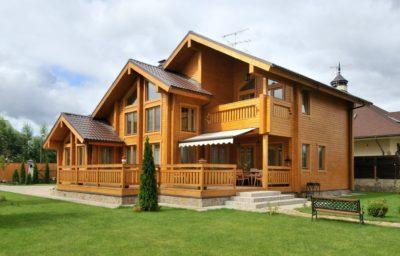
It is worth noting that the law does not have clear distinctions. Registration on the territory of such organizations is excluded, but some changes will come into force in the future. You cannot register at dacha and garden cooperatives, but in a gardening partnership everyone will soon have such an opportunity.
Dacha cooperative - good or evil?
A dacha cooperative, also called a dacha construction cooperative, a dacha non-profit partnership, DSK or DNT, respectively - such an organization provides a number of advantages. Today, a cooperative or partnership does not provide the opportunity for permanent registration - but creates it on the basis of self-sufficiency, giving people the opportunity to build and operate dachas in the most comfortable conditions.
Of course, the operation of dachas involves some collective expenses, and the members of the partnership jointly bear all these expenses, paying amounts that are determined by the meeting. As a rule, the construction of utility rooms and summer cottages is carried out according to standard designs, on land that is allocated for perpetual use to this very cooperative.
In this case, work on the land plot begins after an amount corresponding to the full cost of the planned construction has been deposited into the bank. The size of the share for a member of the DSK is determined by the cost of a separate dacha or one dacha. The transfer of one's ownership to children, spouse, or parents can be carried out with the consent of the general meeting - if the use of the dacha was previously joint. The share of the DSK member will be returned to him after leaving the cooperative, and if we talk about the share of the deceased owner, it will pass to the heirs while maintaining property rights, if the heirs used this dacha during the life of this member.
Borders
If we talk about a dacha non-profit partnership, in other words, DNT, then here all the plots are owned, they are limited, and it is convenient to handle them. Thus, boundary issues in a co-op can be a big problem - this is a clear disadvantage. DNTs are usually located on farmland, while cooperatives are mostly located within the boundaries of cities and towns, and this creates problems with the environmental situation, and not only.
This is interesting: What is a balance sheet in accounting?
But both options also have common problems. As a rule, in both cases we are talking about very small plots of land that were issued to people several decades ago, and these lands are often located in far from the best places - near swamps, under power grids, and so on. This is not very attractive, and when purchasing such land, you should in any case go to the site and examine the potential purchase in person. With DNP, in this regard, everything is usually much better, but nevertheless, such suburban areas are also not without surprises.
What about taxes?
In practice, dacha garden cooperatives are pleased with the fact that taxes here are not at all high, they are approximately at the same level as private household plots. At the same time, taxes on DNT and individual housing construction turn out to be very substantial, and this stops people who just need a dacha and nothing more.
It is worth noting one more issue closely related to finance. As a rule, the infrastructure in cooperatives is very bad. A cooperative dacha is exactly the kind where you will have to take with you a bunch of food, cartons of cigarettes, several loaves of bread, and so on. It is unlikely that you will be able to buy anything locally, and it is good if there is a village nearby where there is at least a kiosk. Summarizing all this, we can emphasize that for the most part, this option for country real estate may well make you look into the last century and enjoy all the delights of the outback as they are.
What to choose?
If you just need a dacha, if you don’t want to invest too much money and pay high taxes, if the possibility of registration is not important to you, and you definitely won’t build a cottage here for the whole family to live all year round, a dacha cooperative may be a good solution for you. You won’t have to invest much, the buildings will be ready, you can engage in farming or just relax for your own pleasure. But if you are going to build a cottage or have other solid plans, it would be better to look for another option. Nowadays, the most popular solution is usually individual housing construction, land for individual residential construction, which makes it possible to register and opens up broad horizons for a person who decides to build a capital project.
Becoming a community member
Persons who have reached the age of 18 can become members of the cooperative. The law provides for the opportunity for legal entities to become participants. Before joining the community, you must submit a written application and pay an entry fee. It is established by statute.
Whether or not to admit a person to a cooperative is approved by a general meeting at which all participants are present. It is important to separately talk about those who are already members of the organization. Such persons have the right to vote at meetings , since they are rightfully accepted into the community.



